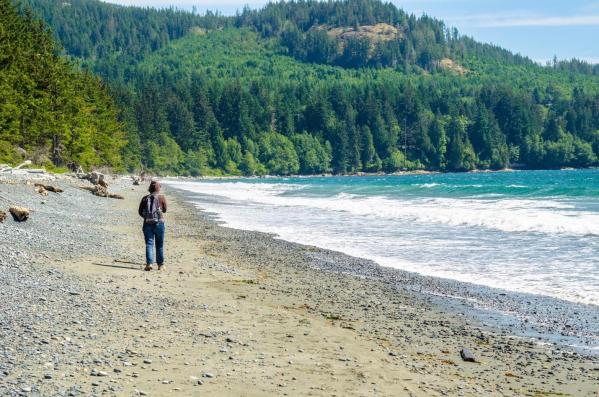Honouring Indigenous perspectives

Clear Seas recognizes the unique place of Indigenous Peoples – including First Nations, Inuit and Métis – in Canada, which affords them rights, as protected under Section 35 of the Canadian Constitution and as recognized in the United Nations Declaration on the Rights of Indigenous Peoples. This may include titles or rights and associated stewardship over their territories, including marine areas.
Collaborating with communities
We strive to actively involve Indigenous communities in our work for a sustainable marine shipping sector that is safe, vibrant, and inclusive for now and future generations. We seek to bring all voices together for informed and respectful conversations about shipping issues.
Our organization seeks to:
- Create awareness among Indigenous communities of Clear Seas’ priorities and activities
- Learn about Indigenous communities’ perspectives on marine shipping issues
- Identify areas where Clear Seas can contribute to addressing marine shipping issues using research capacity, communication, and convening power
- Recognize and involve Traditional Knowledge* in Clear Seas’ research
- Collaborate with Indigenous communities to lead research activities, and provide employment and business opportunities
- Build respectful relationships between Clear Seas and Indigenous communities
*Traditional Knowledge is a system of knowledge or way of knowing specific to Indigenous People. It comes from their cultural heritage, traditional lifestyles and the strong relationship they cultivate with the natural environment. Traditional Knowledge includes deep understanding and insights into traditional subsistence and resource harvesting practices as well as extensive knowledge of environmentally sensitive and culturally significant coastal areas.
Building strong relationships
With the establishment of the Indigenous Internship Program, Clear Seas is developing stronger connections with Indigenous communities and Indigenous youth through supporting research projects of relevance to them. We are committed to sharing knowledge widely for better decisions.
Clear Seas has clearly delineated our role as a supporter by:
- Delivering funding in partnership with Mitacs
- Providing mentorship and support
- Making connections to academic and industry stakeholders
- Identifying training opportunities with academic institutions
- Supporting youth to develop specific skills necessary for the completion of their research as well as their broader educational goals
Creating a more inclusive and diverse maritime sector is another priority of Clear Seas’ Indigenous programs. Indigenous people are leaders in marine stewardship living on Canada’s coastlines – and want meaningful participation in the maritime industry. Industry employers are facing an employee shortage across the sector. Clear Seas’ Indigenous Marine Career Advancement Pathways (IMCAP) seeks to support employers in creating an inclusive workplace to attract and retain Indigenous people and provide Indigenous people with training and support to successfully transition to a new career.
Committed to understanding
Our commitment to supporting Indigenous-led research has allowed Clear Seas a deeper understanding of Indigenous priorities and research gaps, further informing the development of our own research program. This also identifies areas of opportunity for academics and others seeking to engage with First Nations and Inuit on marine shipping issues.
Our Shipping and Ocean Conservation Integration (SOC-I) Program deepens these connections by engaging in conversations about ocean conservation issues that matter to communities, supported by shipping data.

We are continuously learning
Clear Seas will continue to work to decolonialize language, to use appropriate and inclusive terms in our verbal and written communications, both formal and casual, and to present Indigenous cultures in a realistic and insightful manner that reflects Indigenous Peoples’ perspectives about themselves.


